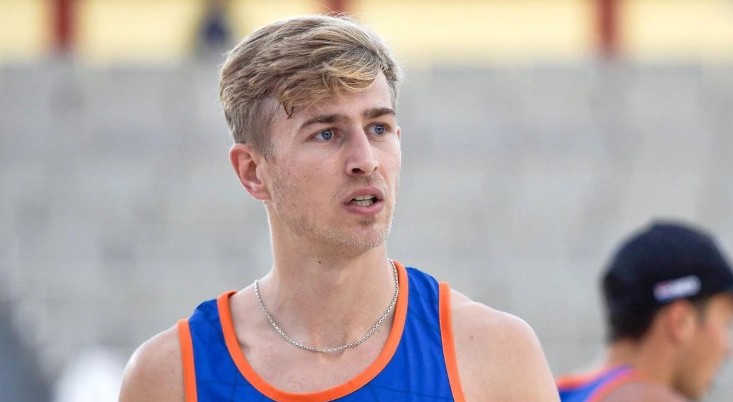Dutch Olympian Steven van de Velde Denied Visa to Australia After Child Rape Conviction
Australia has refused entry to Dutch sand volleyball player Steven van de Velde, a convicted child robber, blocking his participation in the coming month’s Beach Volleyball World Crowns in Adelaide, South Australia.
The 31- time-old Olympian, who represented the Netherlands at the Paris 2024 Games, has faced violent counterreaction since news of his planned attendance surfaced.
His felonious history, a conviction for violating a 12- time-old girl in the UK, has once again placed him under global scrutiny.
Van de Velde’s crime dates back to 2014, when, at 19, he traveled from Amsterdam to Milton Keynes to meet a girl he’d prepped online via Facebook.
He also ravished her at her home. Two years later, in 2016, he was extradited to Britain, where he pleaded guilty to three counts of child rape and received a four- time captivity judgment.
He served just over a time before being released and returning to professional sport, an act that numerous critics have since condemned.
At the Paris Olympics, crowds booed and mocked as he took to the beach, calling into question whether condemned coitus malefactors should be allowed to represent their countries on the world stage.
Opposition to his entry into Australia was fierce. South Australia’s Attorney-General Kyam Maher took a hard stance, urging the federal government to deny the visa, saying: “We do not believe that foreign child sex offenders should be granted entry to this country.”
A public solicitation backing Maher’s appeal quickly gained traction, gathering over 4,000 autographs in a matter of days.
The pressure worked. The Australian Department of Home Affairs eventually refused Van de Velde’s visa, though it declined to provide a reason for the decision.
The Dutch Volleyball Association( Nevobo) verified that both Van de Velde and his long-time doubles mate Alexander Brouwer will now miss the Adelaide crowns, set to begin on 14 November.
Nevobo’s technical director, Heleen Crielaard, issued a brief statement acknowledging the decision:
“Unfortunately, we have now been informed that the decision has been made not to grant the visa. We regret this, but we have no choice but to accept the decision.”
Van de Velde himself admitted he had anticipated complications: “We took into account that the combination of the Australian authorities’ policy and my past might pose a problem for obtaining a visa.”
Brouwer, who has competed at six previous world championships, shared his disappointment on social media: “Got the news this morning – no visa means no Australia.
Would’ve loved to compete with Steven in my 7th World Championships, but it is what it is.”
For many, the Steven van de Velde case is representational of the pressure between athletic redemption and moral responsibility.
Despite winning two European Championship citation orders and rebuilding a career post-prison, his history continues to define him.
Australia’s turndown sends a clear message that certain crimes have lasting consequences, indeed for world-class athletes.
And for Van de Velde, it appears the shadow of Milton Keynes will follow him far beyond the volleyball court.






